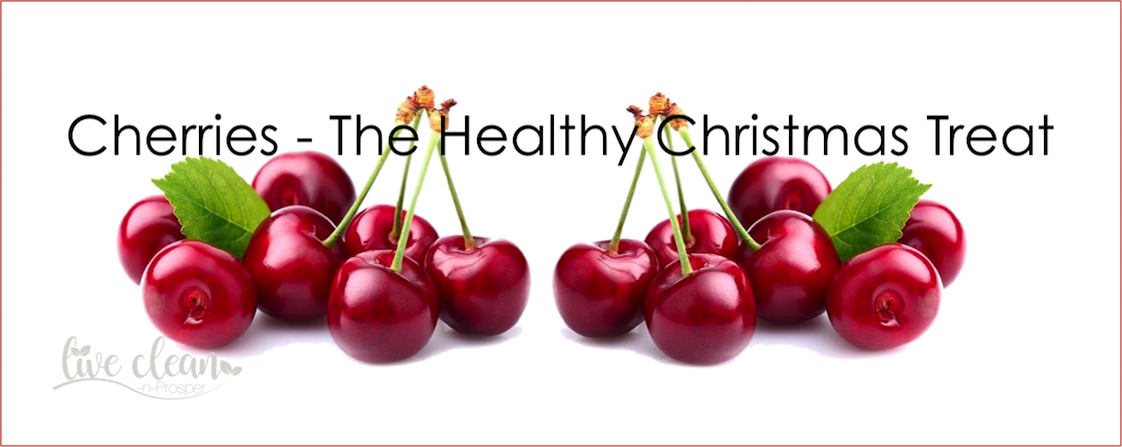Todays post is about Cherries.
In my last post about Gout I mentioned that eating Sour Cherries could assist with this condition. With Christmas approaching, these fruits are popping up in our supermarkets. I thought some research into cherries was a good idea.
Here is what I found out.
First of all, there are two main cherry species:
Sweet Cherries (Prunus avium L.), which are what we often see in the supermarket, sold as generic fresh cherries.
Sour Cherries (Prunus cerasus L.) are mostly used in processed products such as frozen, canned, and juices or typically preserved for cooking purposes or for making cherry brandy.
Within these two species, there are more than 80 different varieties of cherries grown within Australia. Different varieties are harvested at different times. This means that different varieties of cherries are available from November to January.
Are they healthy?
Overall cherries are a good source of vitamin C, potassium, fibre, and other nutrients that the body needs to function optimally. They are packed with antioxidants and anti-inflammatory compounds. The amount and type of antioxidant can vary, depending on the variety.
It is the unique combination of these vitamins, minerals, anti-oxidants and anti-inflammatory compounds which act together. This enables cherries to deliver health benefits not available in supplements.
These little stone fruits contain powerful antioxidants called anthocyanins, which provide a variety of health benefits, and give cherries with their rich red colour.
Research conducted by the USDA Human Nutrition Research Centre on Ageing at Tufts University, confirmed sour cherries contained similar or higher amounts of antioxidants compared to blueberries, blackberries, strawberries and raspberries. At least one serving of cherries (100 grams) per day is required. Though additional servings do deliver more benefits.
What are the health benefits?
The health benefits of antioxidants are wide ranging. The flavonoids found in cherries and other fruits help reduce and combat oxidative stress, a condition that is linked to multiple chronic diseases and premature ageing.
Antioxidants are necessary to clear the body of damaging free radicals and they are most effectively acquired through diet. If we don’t consume enough antioxidants, damage can occur. This can lead to degeneration and disease including cardiovascular disease, arthritis, cancer, inflammatory conditions and neurological diseases.
Other studies have found that eating cherries effectively reduced inflammation by suppressing inflammatory proteins, which can help reduce symptoms related to arthritis.
Plus, they can decrease uric acid levels in the body, making them especially beneficial for those with gout.
Overall, research has confirmed that cherries have significant health benefits. Such as slowing or inhibiting the progression of cancer, ageing, neurological diseases, cardiovascular disease and inflammatory conditions.
What about tart or sour cherries?
Tart cherry juice and concentrate have been found to accelerate muscle recovery and decrease exercise-induced muscle pain. It has also been found to prevent strength loss in elite athletes, such as cyclists and marathon runners.
Eating sour cherries or drinking tart cherry juice may also help improve sleep quality. This may be attributed to the fruit containing melatonin, a substance that helps regulate the sleep-wake cycle. This is why sour cherry concentrate is often included in sleep supplements.
So, not only do cherries contain several powerful plant compounds that can help reduce inflammation, but also eating them may improve sleep, slow ageing, and assist exercise recovery.
Sounds like a lot of good reasons to enjoy these delicious red fruits this Christmas.
Enjoy.
Till the next post,
Live clean n prosper.
Sources – (The Victorian Cherry Assoc – Healthline )


